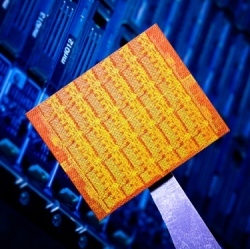
Looking for a specific protein in a drop of blood is like trying to find a notorious white whale on the seven seas — it takes some time. But a new device quickly filters the ocean of molecules in a blood sample, capturing proteins that may warn of an impending heart attack or out-of-whack insulin levels. Besides detecting potential emergencies, such devices could minimize the fraught days a patient spends waiting for lab results, providing them in mere minutes.
Experiments showed the setup detected various levels of troponin T, a cardiac-regulating protein that can signal an impending heart attack, in less than 10 minutes.
In the future, people at home who are having chest pains might use the technology to find out quickly whether they need to get to an emergency room, says biomedical chemist Fernando Patolsky.
The sugar-cube–sized lab-on-a-chip consists of two small compartments connected by a thin channel. In the first compartment is a densely packed forest of silicon nanowires coated with antibodies, molecules that latch onto specific proteins. The researchers made these nanowires very rough and full of holes, greatly increasing the surface area for attaching the protein-grabbing antibodies.
“They are so rough and porous we can turn a 1-centimeter-square wafer into a 300-centimeter-square surface,” Patolsky says.
